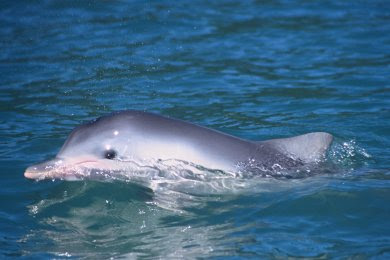Every
time you go to a different beach, the most prudent thing to do is
asking local people where the safe places to swim are (places with no
currents, for example). It is very likely that you would ask people
somehow involved with the sea at that particular beach, such as
lifeguards, surfers, and fishermen. The reason is obvious: since they
are used to the local environment, they would know the risks. The
same is true when researching any specific characteristic of a given
area. Sometimes, when you want to understand specificities of a
place, the best option is to ask local people about its
characteristics and dynamics. When living in a place and depending
directly on its resources, people learn how to deal with things
available at the place. As these people spend time on their daily
activities, they also have more opportunities to observe and
accumulate knowledge of the surrounding area. Gathering this local
ecological knowledge (LEK) is a good way to learn about local
features without spending too much time and money, since they would
already be the result of local experience through years (and,
sometimes, over generations).
Based
on this, several researchers have been including the LEK into their
studies to learn about the ecology and biology of different species.
In our paper [“The behavior of the estuarine dolphin (Sotalia
guianensis,
van Bénéden, 1864) according to fishermen from different fishing
environments”], we investigated the knowledge fishermen had about
the behavior of a local dolphin. Even though dolphins are charismatic
species, even for researchers, we still have a lot to learn about
them because it is not that easy or cheap to study the behavior of
species that spend most of their time underwater. Fishermen, on the
other hand, have a natural chance to learn about dolphins, simply by
performing their profession. But fishermen are just regular human
beings and, as such, will have their cultural biases as well that
will shape the knowledge they carry.
 |
| Sotalia guianensis, PHOTO: http://uk.whales.org |
Assuming
that such biases would affect knowledge construction, we investigated
how the perception of small-scale fishermen regarding the behavior of
the estuarine dolphin (Sotalia
guianensis)
is affected by their education, experience, the type of environment
where they predominantly fish, and the extent to which they are
involved in dolphin watching tourism. We interviewed fishermen in
routine contact with populations of S.
guianensis
in NE Brazil. Overall, most fishermen correctly reported the habitat,
distribution, seasonality, and feeding behavior of this dolphin,
besides bringing new insights into the dolphin’s reproductive
behavior and its possible migration patterns. As expected, more
experienced fishermen provided more details. Interestingly though,
those fishermen that studied more years could also provide better
details, perhaps suggesting that formal education could fine-tune
their perception. Another important finding of this study is that
fishermen’s knowledge is widely affected by the fishing environment
they commonly use, because dolphins perform different behaviors
depending on where they are. This finding has as additional
implication and could be used as an attention flag to studies using
LEK: you better carefully select your informants depending on what
you want to learn, besides considering the effects of their cultural
biases. Once you are aware of those limitation, inherent to human
beings, be sure that fishermen, besides knowing a lot about fish, may
also provide information on cetaceans that could be used in
management and conservation when scientific sources are missing or
insufficient.
Manzan, M & LOPES, PFM. 2014. Fishers' knowledge as a source of information about the estuarine dolphin (Sotalia guianensis, van Bénéden, 1864). Environmental Monitoring and Assessment, 187: 4096.
Manzan, M & LOPES, PFM. 2014. Fishers' knowledge as a source of information about the estuarine dolphin (Sotalia guianensis, van Bénéden, 1864). Environmental Monitoring and Assessment, 187: 4096.



Do you need personal loan?
ReplyDeleteLoan for your home improvements,
Mortgage loan,
Debt consolidation loan,
Commercial loan,
Education loan,
Car loan,
Loan for assets.
financialserviceoffer876@gmail.com Whatsapp +918929509036